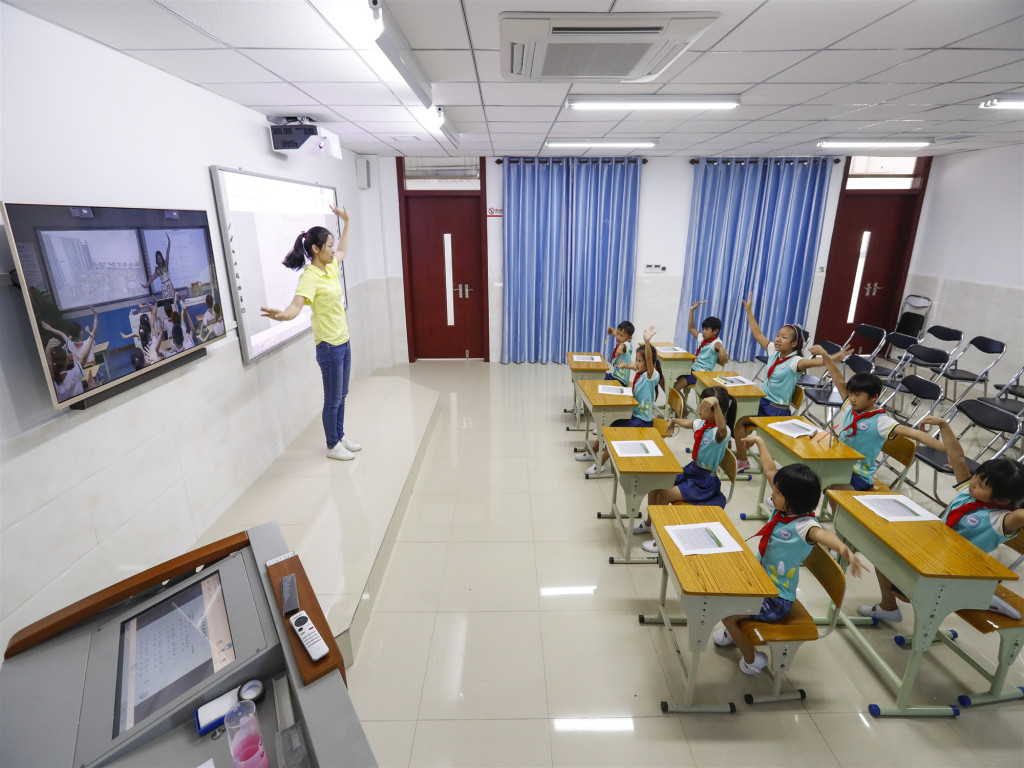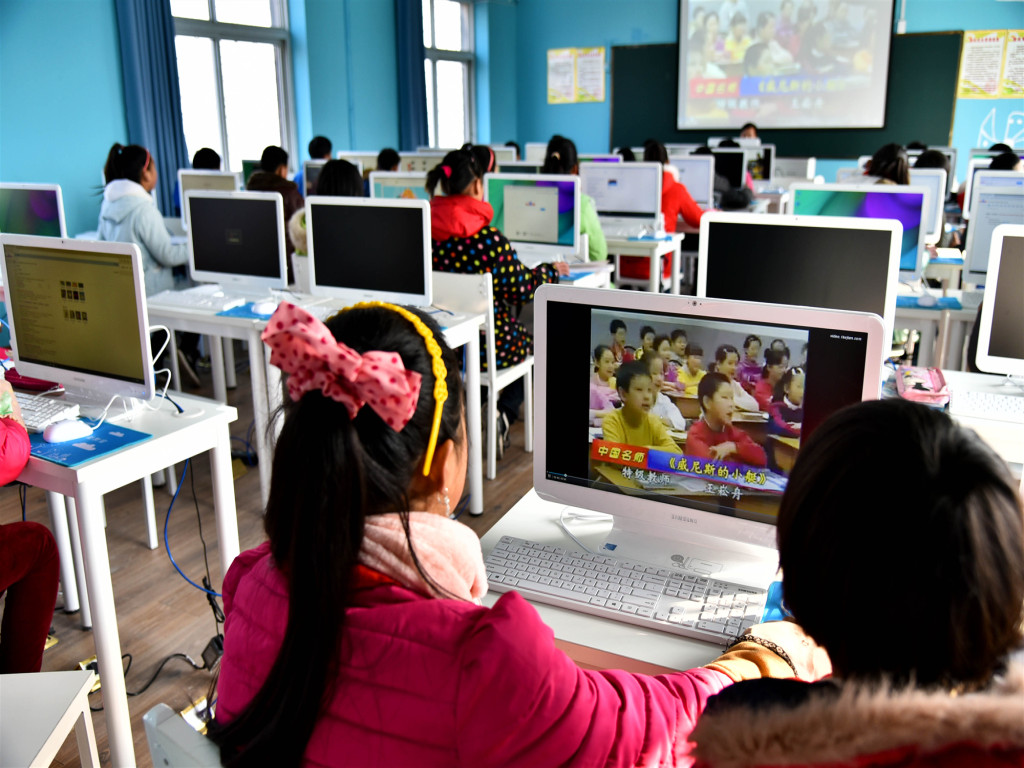
Online education in China is continuing to grow at a lightning fast pace and is now worth tens of billions of yuan.
Five years into the so-called online education era there are no signs of it slowing.
The trend in Asia first started in South Korea and it has taken off in China since education authorities announced a 10-year plan in 2011 to popularize the use of information, communication and technology (ICT) in the field of education nationwide.
What has spurred the growth is a combination of the government’s creation of the Open University of China that enables students to earn qualifications online, coupled with the Ministry of Education asking key universities to offer MOOCs supported by subsidies under the National Outline for Medium and Long-term Education Reform and Development (2010-2020).
On top of that, there has also been an increase in the number of internet companies springing up that offer a variety of online courses, both in China and abroad.
In today’s Story in the Story, we will look at how online education may help solve the rural teacher shortage.

Remote tuition overcomes distance and gives isolated children a taste of the outside world. (Photo: China Daiy)
Educating children in China’s rural areas has long been an issue, mainly due to a shortage of teachers willing to work in far flung regions, but now, thanks to advances in technology, children in isolated parts of the country are benefiting from online learning.
Despite government measures to attract and retain more rural teachers - including higher salaries, subsidies and even free college education for trainee teachers who commit to working in rural areas for a certain period - numbers continue to fall.
Xinxing Primary School in Ninglang's Yongning township has two English teachers, one is a class-based teacher, while the other is a foreign, native speaker who provides online instruction from thousands of kilometers away.
"For the first time in my life, I can see a foreign person talking to me in English. I am so excited," Yang Xiaoli said.
The online teacher showed Yang and her classmates photos of iconic buildings and places, such as the Eiffel Tower, the Statue of Liberty, the Metropolitan Museum of Art and the London Eye.
Since then, the once-weekly classes have become more than just learning a language. "They are a window to the outside world and make me think that someday I can cross more mountains and see what the world has to offer," Yang said.
Wu Xingzhen, principal of Xinxing Primary School, said the real-time classes mean students can easily interact with the teachers. "It is like they are in the same classroom," she said, adding that the students are thrilled when they win praise for answering questions correctly.
Most students take online classes at least once a week, which has helped them achieve better grades and become more confident in expressing their views and participating. Moreover, remote tuition is a highly effective way of sharing high-quality educational resources and providing an accurate, personalized teaching service, she added.

A screen is set up in the classroom so the students can see their teacher in real time via the online learning platform. (Photo: China Daily)
Wu pointed out that she also benefits from the classes, because she hands over the more difficult English classes to the native speaker but remains in the classroom to encourage the students and maintain order.
"Now, my students are gaining more confidence - they're getting a window on the outside world through these online classes," she said.
Despite the apparent success and benefits of online instruction, not every education professional is in favor of the model.
Xiong Bingqi, deputy director of the 21st Century Education Research Institute in Beijing, is not sold on the idea of online learning as a solution to the teacher shortage in rural areas. Instead, he believes that it is important for children to be taught by teachers who are physically in the classroom.
"Education is more than just knowledge being passed from teachers to students - learning also comes from a teacher's behavior and their personality," he said.
He added that the government should take more measures to attract, develop and retain proficient teachers in rural areas, including offering more training and opportunities for promotion, and better salaries.
(Produced by Nancy Yan Xu, Brian Lowe, Lance Crayon and Grace Xinyi Song. Music by: bensound.com. Text from Xinhua and China Daily.)


